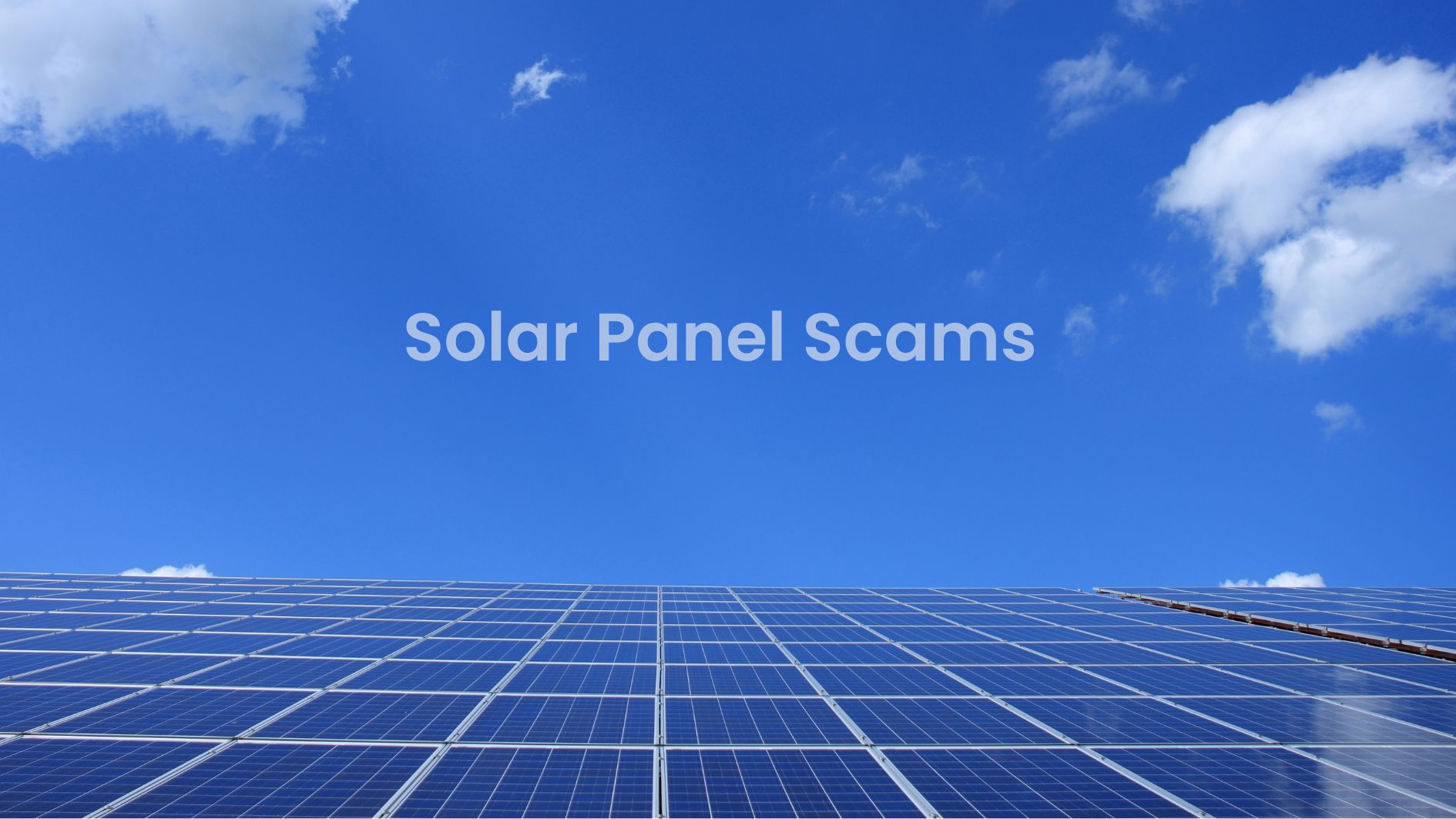Image source: Canva.com
As the solar energy market grows, so do the number of scams targeting unsuspecting consumers. Certain groups are more vulnerable due to a combination of factors such as lack of familiarity with the market, financial motivations, and susceptibility to high-pressure sales tactics. Understanding who is at risk and the tactics used by scammers can help you protect yourself and others from falling victim to these schemes.
New Homeowners

New homeowners are prime targets for solar panel scams. Recently purchasing a home often means dealing with numerous financial responsibilities and decisions about home improvements. This group might be unfamiliar with the renewable energy market, making them more susceptible to false claims or misleading information.
Scammers might target new homeowners by offering seemingly attractive deals on solar installations, claiming immediate savings and government incentives. The excitement and financial strain of a new home can make it easier for scammers to push through fraudulent contracts without thorough scrutiny.
Homeowners Trying to Save Money
Individuals and families with limited financial resources are often drawn to solar panels by promises of significant savings on their energy bills. Scammers exploit this desire by making exaggerated claims about the potential savings from solar installations or offering unrealistic financing options that seem too good to be true.
These scams prey on the hope of reducing monthly expenses and achieving financial relief, but they often result in costly contracts that deliver little to no actual savings.

Seniors

Older adults are another group frequently targeted by solar panel scammers. Seniors are often home during the day, making them more accessible to door-to-door salespeople who use high-pressure tactics. This demographic might also be less familiar with modern technology and renewable energy markets, making them more susceptible to misleading information.
Scammers might use tactics like exaggerated claims of savings, fake affiliations with government programs, or confusing contract terms to trick seniors into signing agreements that are not in their best interest.
Common Solar Panel Scams and Tactics
False Promises of Savings

One of the most common tactics used by fraudulent solar companies is to overpromise the savings that can be achieved with solar panels. They may significantly overstate the reduction in energy bills or fail to disclose potential issues, such as maintenance costs or efficiency losses, that could diminish the promised savings. Always verify the claims made by solar companies through independent research or consulting with trusted energy advisors.
Misleading Contracts and Terms
Scammers often incorporate hidden fees, undisclosed contract terms, or misleading information about government incentives, rebates, insurance requirements, or tax credits into their contracts. Additionally, consumers might be misled into signing contracts by being told they are only authorizing an initial review or credit check when, in fact, they are signing a sales or financing contract. Carefully read and understand all contract terms and seek legal advice if necessary before signing.

Subpar Equipment

Another scam involves contractors installing lower quality or used equipment while charging for premium products. This practice can result in reduced efficiency, frequent breakdowns, and early equipment failure, ultimately costing homeowners more in repairs and replacements. Ensure that the equipment being installed is new and meets industry standards by verifying product specifications and checking the reputation of the brands being used.
Unnecessary Upgrades and Add-ons
Scammers might try to sell unnecessary upgrades or additional products, such as inverters or batteries, that do not significantly improve the performance of your solar system but inflate the overall cost. Always get a second opinion on the necessity of additional products and consult with multiple reputable contractors to compare recommendations.

Pressure Tactics

High-pressure sales tactics are a red flag in any industry, and solar panel scams are no exception. Scammers might claim a limited-time offer or insist on immediate signing to prevent adequate research or comparison shopping. Legitimate companies understand that installing solar panels is a significant investment and will give you the time needed to make an informed decision.
Phony Companies or Contractors
Some scammers create fake solar companies or pose as legitimate contractors to collect deposits or payments and then disappear without completing the work. To avoid this, verify the company’s credentials, check their business license, and read reviews from other customers. The Better Business Bureau (BBB) is a valuable resource for checking the legitimacy of companies and identifying any complaints filed against them.


Protecting Yourself from Solar Panel Scams
To protect yourself from solar panel scams, consider the following tips:
- Verify affiliations: Be cautious of companies claiming to be affiliated with the government. Always verify such claims through official channels.
- Research thoroughly: Look up reviews and ratings on trusted platforms, verify credentials, and consult industry organizations like the North American Board of Certified Energy Practitioners (NABCEP).
- Compare quotes: Obtain and compare quotes from multiple reputable solar companies to ensure fair pricing and service offerings.
- Read contracts carefully: Understand all terms, including warranties, cancellation policies, payment schedules, and any potential hidden fees.
- Check eligibility for incentives: Confirm your eligibility for rebates, utility incentives, and other perks through official resources.
- Get written contracts: Always ask for a written copy of all contracts to review before signing.
- Verify sales permits: If approached at home, ask for and verify the salesperson’s home solicitation permit and photo ID.
- Ask questions: Don’t hesitate to ask questions and seek clarity on any part of the process.
- Avoid large upfront payments: Be cautious of companies requesting significant upfront payments or deposits.
- Ensure proper permits and inspections: Confirm that the company handles necessary permits and inspections.
- Check with the BBB: Contact the Better Business Bureau to check for any complaints against the company.
By staying informed and vigilant, you can protect yourself from solar panel scams and make a safe, informed decision about transitioning to solar energy.





